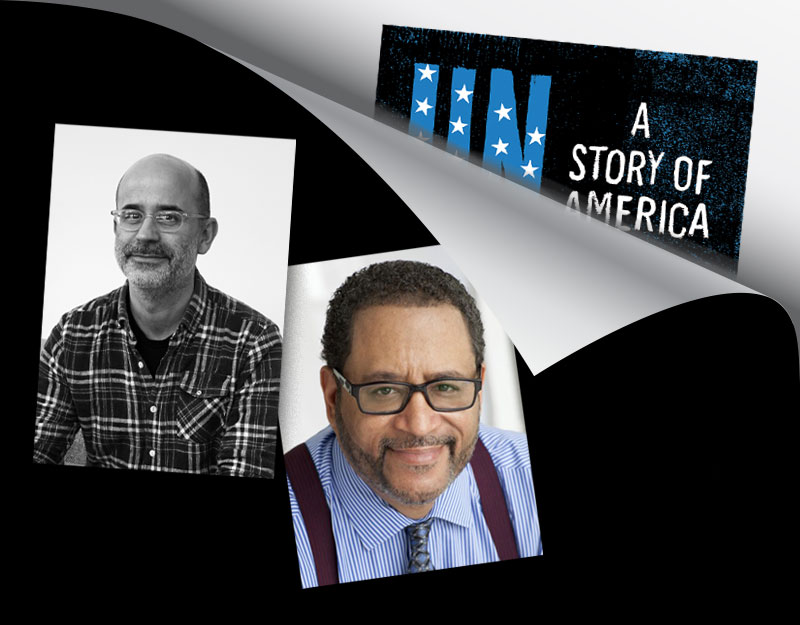Not the Mermaid or Monster You Knew, a guest post by author Robin Alvarez

Retellings continue to be popular among YA, and for good reason. Who doesn’t love a good Cinderella or Beauty and the Beast retelling with a modern twist—especially when these dated tales give us new, more feminist characters to admire for their strength and ability to succeed without a partner doing the work for them?
But what if I told you some of the old princesses and monsters we love to look down on were more feminist than the general population realizes? The Little Mermaid and Medusa have been shamed quite enough, and it’s time to shed more light on these old characters and their influences on recent homages in When Oceans Rise by Robin Alvarezand Ever Since by Alena Bruzas.
ADVERTISEMENT
ADVERTISEMENT
When people ask what my Little Mermaid retelling is about, I always comp it to the darker Hans Christian Anderson version of “The Little Mermaid.” When Oceans Rise is like a Filipino Little Mermaid, only instead of a girl giving her voice up for a guy, she gives up her voice to escape a guy. It’s an easy way to pitch but not entirely accurate.
My story is about seventeen-year-old Malaya, who chooses to go voiceless in the face of an abusive relationship because she believes silencing herself will give her peace. But when the sea witch uses her voice to unleash Filipino monsters on the worlds, she soon realizes there is more power to her voice than she ever imagined, and she’ll need it to save the worlds (Oceans has alternate universes hence the s.)
There’s been a lot of discourse about old fairy tales on social media recently, particularly with the release of the new Little Mermaid movie. Many people shame stories like the old Little Mermaid because it promotes this antifeminist idea that women will give up their whole lives for a man.
The opposing argument is that if you watch the old version of the movie closely, you’ll see that what the little mermaid sings about wanting most is to be part of the human world. That is what her “I want” song is about. In fact, she does not sing about wanting a man but wanting a world beyond the familiarity of her own.
In Hans Christian Anderson’s darker version of The Little Mermaid, while the mer-princess falls in love with the human prince over the course of several seasons, she expresses a similar sentiment of wanting something beyond her own underwater world—specifically an immortal soul which only humans have.
In her story, the unnamed princess will live for 300 years, but when she dies, she will not experience heaven. She expresses, “I would willingly give up my three hundred years to be a human being for only one day, thus to become entitled to that heavenly world above.”
But what she wants isn’t easily grasped because while she does make a deal to appear human, in order to obtain an immortal soul, the prince must love and marry her. Only through this commitment will his soul flow into hers, granting her what she truly wants most. While the negative gender paradigm of a man saving a woman still exists in this story, the little mermaid character herself can be considered a feminist for wanting more from her world than a man.

In When Oceans Rise, Malaya’s identity is stripped when her first love gaslights and abuses her. Her dearest wish, by the time she meets the sea witch, is not to have her toxic boyfriend changed into someone nice. She wants a chance to trust herself again, be safe, and be given the opportunity to have the relationships with her family that she had before she became alienated from them in this abusive relationship.
Even while trapped in this mental warfare, Malaya always wants more than a guy, and her journey to self-love has to do with regaining the power of her voice. This was significantly influenced by the Hans Christian Anderson version of The Little Mermaid for the way her inability to communicate with the prince ultimately leads to her death.
While Anderson’s old classic leans into the patriarchal agenda that women need to be saved by men, it can be examined more closely for the way his little mermaid did not most desire a man for her happiness.
Similarly, another woman from mythology that has been painted as a “monster” but reeks of the male gaze and patriarchy is Medusa. Medusa is painted out to be a villain who turns all who look at her into stone. She is even beheaded, and a piece of her body becomes a mere object in death to be used as a weapon to kill. This story takes objectification to a whole other level!
But the origins of Medusa are quite sad in more than one version of the tale. In one version, Poseidon forces himself on Medusa, and after she is defiled, the goddess Athena decides to punish her. She turns her into the monster of the myth we know and ensures a life of loneliness because no person can be around Medusa without turning into stone. In another version of the tale, Medusa willingly sleeps with Poseidon and is punished for doing so.
These stories are incredibly sad for how Medusa is painted as a monster to conquer and destroy. In the latter, she is a woman who is criminalized for having sex while the man is completely absolved of the same act. In the former, Medusa is villainized for the crime that happened to her. This amplifies victim-blaming—an issue our society still combats today.
What does victim blaming look like?
Often it occurs when people look at a victim of abuse and say things like, “If it were me, I never would have let that happen. If I was in that situation, I would get out. Well, what was she wearing? How did she get in that situation in the first place?”
These types of statements take responsibility away from the abuser and ignore the many barriers the victim faces in trying to escape their horrible situations.
While When Oceans Rise is about mental, emotional, and physical abuse and the trauma we live with immediately after, Ever Since addresses grooming, sexual abuse as a child, and the trauma that echoes into one’s life for years after.
Ever Since gives small insights into different mythologies and briefly mentions Medusa in both versions of her tale as a woman villainized for sex and a victim of rape. While this allusion to Medusa’s character is merely half a page long, it struck me as the core retelling of Ever Since, despite Ever Since being YA contemporary fiction.
The main character, Virginia, is a victim of child abuse, and her traumas leak into her behaviors and decisions. Because she never exposed her abuser, she internalized what happened and did not get the help she needed to cope. Like Medusa, there are two versions of Virginia. There is the narrative fueled by her peers that she is shamefully promiscuous, and then there is the lesser-known truth—that she is a victim of sexual abuse and needs help.
Virginia goes through this heartbreaking story in which she leans into the damaging reputation people whisper about her because she feels too broken and unworthy to be anything else. She is the Medusa people loved to hate, not the girl who needed to be saved.
ADVERTISEMENT
ADVERTISEMENT
What did all these women, the little mermaid, Medusa, Malaya, and Virginia, have in common? They silenced themselves. They silenced themselves because they thought it would make them feel human, but the pain they endured by going voiceless was so much more acute.
While The Little Mermaid and Medusa never regain their voices, and their stories end tragically, Malaya and Virginia’s stories are about finding the strength to speak up. As modern retellings will do, we offer up resilient women who won’t let themselves be silenced.
These characters were based on women whose stories have been skewed for too long—women who wanted more and were villainized for it. These old narratives are drenched in the patriarchy, but these are not the women you knew.

Bio: Robin Alvarez is a beach bum living in the desert with her husband and two kids. She has a masters with a focus on creative writing, was co-editor of the literary magazine The Sage, in which her short stories have been published, has written for The Bend Business, and currently works at Sul Ross University. Strong female characters, mythological creatures, and a mixed-race perspective are hallmarks of her work. While she’s spent the majority of her life in beach towns, having almost drowned several times, she currently resides in a desert where the waters are less likely to kill her.
You can connect with her on her website or on social media:
Tiktok: @robiiehood
Instagram: @authorrobinalvarez
Filed under: Mermaids, Teen Fiction
About Karen Jensen, MLS
Karen Jensen has been a Teen Services Librarian for almost 30 years. She created TLT in 2011 and is the co-editor of The Whole Library Handbook: Teen Services with Heather Booth (ALA Editions, 2014).
ADVERTISEMENT
ADVERTISEMENT
SLJ Blog Network
The 2024 Ninja Report: Bleak
A Sequel Coming This Summer That You Won’t Want to Miss: Bob Shea Discusses His Latest
Review| Agents of S.U.I.T. 2
ADVERTISEMENT








Thank you for writing about this important topic. Loved When Oceans Rise.